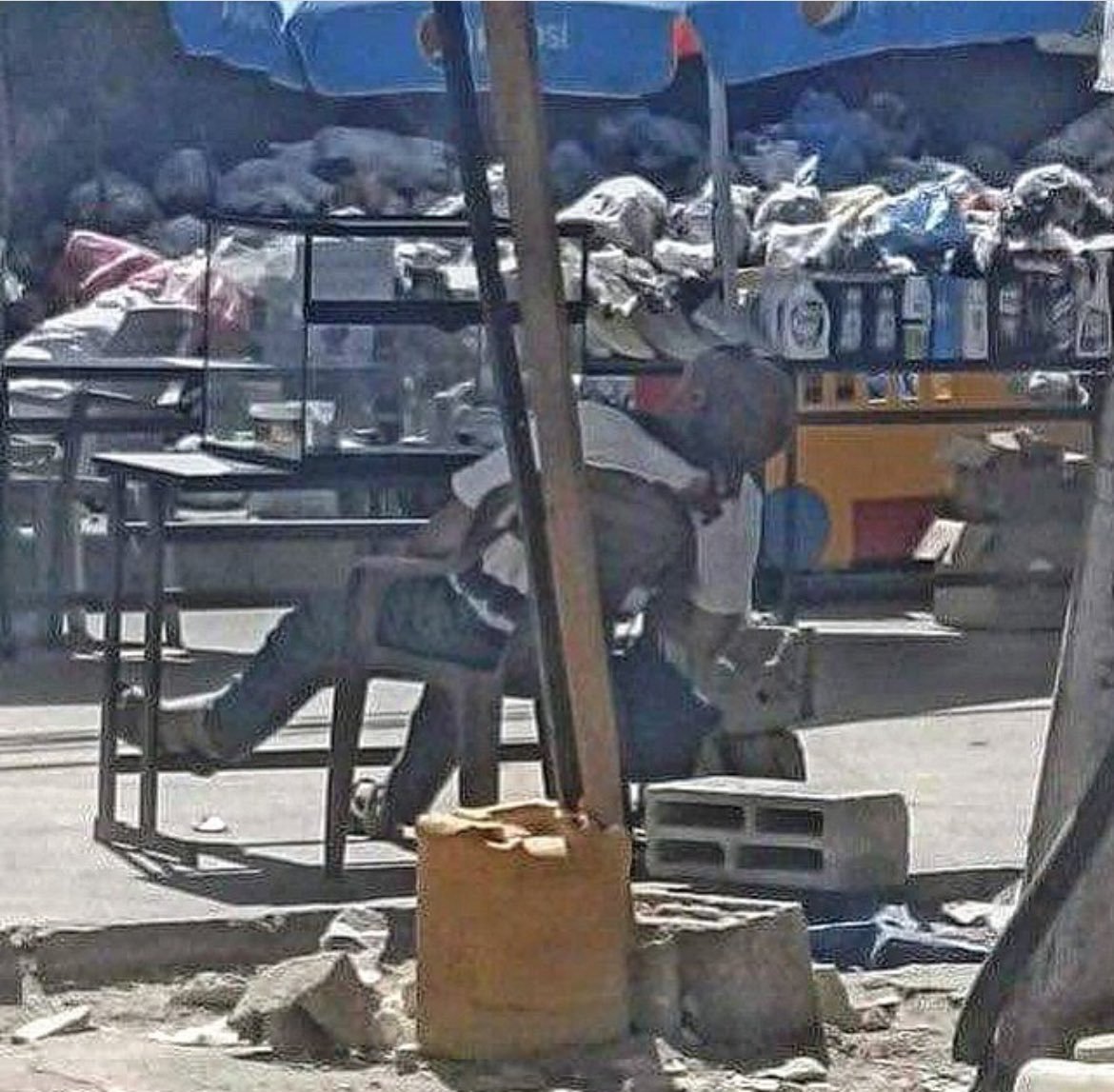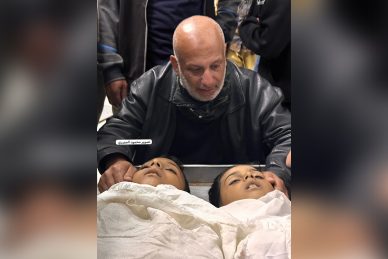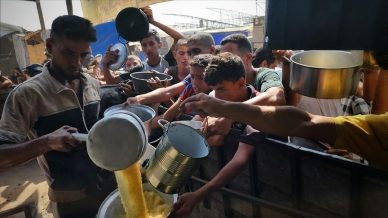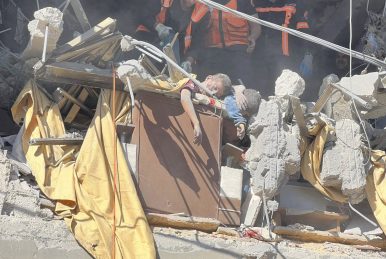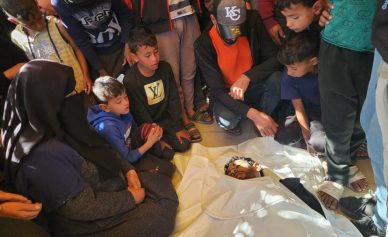GAZA, (PIC)
“This is a picture of my uncle Adham, who was martyred today. He lived a hard and exhausting life. Since I was a child, I never saw him at ease. He was the most miserable person I knew, but I swear, I never heard him complain about life or saw him angry. He was always grateful and devoted to pleasing his parents.”
With these words, Shadi Samara from Gaza mourns his uncle (the martyr Adham Alyan), who appears in a widely shared photo on social media, sitting on a chair behind a stall where he made a living for his family before being assassinated by Israeli aircraft during Eidul Adha.
Samara continues in a statement, “My uncle died today without his name being mentioned in the news. He died unknown and alone. He died as he lived, sitting at his stall selling whatever he could to support his family. He died with many needs unmet. May Allah have mercy on him and grant him paradise and spare us from further loss.”
The martyr Adham Alyan passes away in silence, joining tens of thousands of martyrs before him, mostly women, children, and the elderly, leaving behind a question for the world that watches silently as the Israeli crimes continue, “Why do you kill our families and our women and children without reason?”
Dr. Iyad Qunibi comments on this crime, “This act reflects the level of these despicable people. May Allah’s curses be upon them and those who support and help them.”
He continues, “On the third day of Eid, Adham Alyan, a man in his fifties, sat at his stall in the Al-Sahaba market in Gaza City, trying to earn enough to feed his children. Above, there was a ‘Quadcopter’ drone, equipped with a machine gun, which shot him in the head, killing him instantly.”
Qunibi quotes journalist Sami Mushtaha as saying, “Imagine three or four occupation soldiers in a control room, watching live footage, betting they can kill him with a shot to the head, just for fun!”
Eid in Gaza tastes like sorrow over lost loved ones
Under this title, the United Nations documents scenes of the occupation’s crimes, especially during Eidul al-Adha.
In Gaza, this year’s Eidul al-Adha did not bring joy to many residents. Instead, it was a time of mourning and recalling painful memories of lost loved ones. Ibrahim Awda and Mohammed Hani are displaced persons from Gaza who have lost many of their loved ones and are now enduring the bitterness of repeated displacement.
The United Nations reports, “Our correspondent in Gaza, Ziad Talib, met Awda and Hani to shed light on the severe suffering they endure, like thousands of other residents. The displaced spoke of their feelings as they spent Eid without a home or family.”
According to the report, Ibrahim Awda says he is one of the few survivors of an Israeli strike on October 29, 2023, which killed all his family members except for him and two of his brother’s daughters. Awda is currently on a journey of displacement that began on November 27 from northern Gaza, moving from Rafah to Khan Yunis, and has now settled in the Zawaida area in central Gaza.
Awda welcomes Eidul al-Adha this year without his family, with only their photos on his mobile phone. He wonders why he lost his family during the ongoing war of more than nine months, without justification, with heavy missiles targeting civilian neighborhoods.
“I am the only survivor of a massacre that killed my family, the family of martyr Hassan Awda, where my father, mother, sister, brother, and his wife were martyred. We were at my uncle Khalid Awda’s house when it happened, and his family survived, except for his wife, two daughters, his son with Down syndrome, and his granddaughter. I survived with my brother’s daughters (5 and 3 years old).”
After recovering from his injury, Awda moved to southern Gaza, as it was supposed to be a safe humanitarian area according to the Israeli army’s instructions to civilians in Jabalia Camp, which was the world’s most densely populated area.
Ibrahim says that Jabalia Camp was subjected to intense random bombing on civilians, forcing him to flee to southern Gaza.
“My feeling is that I miss my family and need a long time to recover from the state I went through after losing them. I miss them every day, not just on Eid. We used to celebrate Eid morning, and we have memories and a life that is different from any ordinary day.”
We survived to tell the world what happened to us
Ibrahim Awda wonders, “Now we – myself and many other families or survivors whose families were wiped out – are asking, why were our families killed? We were just a group of civilians taking shelter in very old homes. The homes in Jabalia Camp are built of stones, sand, and mud. We were inside these homes when we were bombed with very large, heavy military missiles. Today, we have survived to speak and tell the world what happened to us.”
Displaced for the 5th time
Mohammed Hani, another displaced person from the Tel al-Hawa neighborhood in Gaza City, has experienced displacement five times within the southern Gaza provinces due to ongoing military actions for more than nine months.
He adds, “I just want to provide my family with a safe shelter because there is no safety. I lost my uncle and my cousin. We had six deaths due to disease because they suffered from atrophy and cannot live in such places. Patients with muscle atrophy need special conditions and physical therapy, which they lost.”

